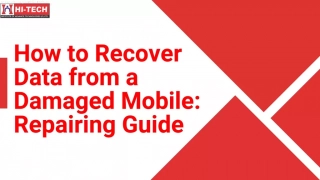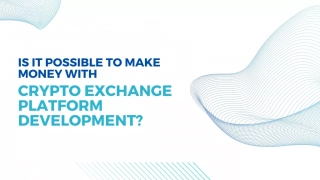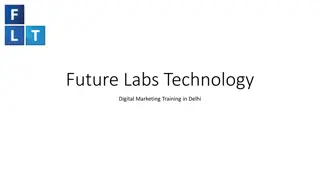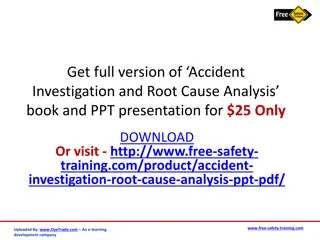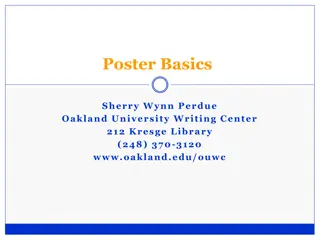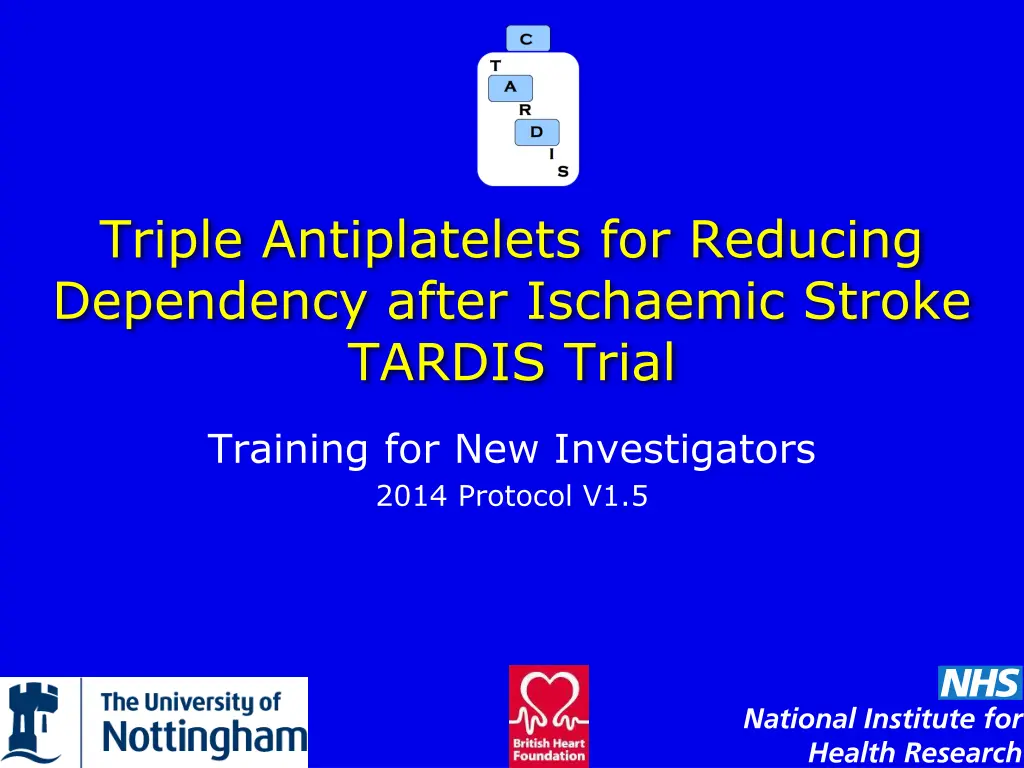
Reducing Dependency after Ischemic Stroke: TARDIS Trial Overview
Explore the TARDIS Trial investigating triple antiplatelets for reducing dependency after ischemic stroke. Learn about trial phases, recruitment status, stroke definitions, primary objectives, and medication protocols. Get insights into the study design, patient criteria, and the impact on stroke severity at 90 days post-treatment.
Download Presentation

Please find below an Image/Link to download the presentation.
The content on the website is provided AS IS for your information and personal use only. It may not be sold, licensed, or shared on other websites without obtaining consent from the author. If you encounter any issues during the download, it is possible that the publisher has removed the file from their server.
You are allowed to download the files provided on this website for personal or commercial use, subject to the condition that they are used lawfully. All files are the property of their respective owners.
The content on the website is provided AS IS for your information and personal use only. It may not be sold, licensed, or shared on other websites without obtaining consent from the author.
E N D
Presentation Transcript
Triple Antiplatelets for Reducing Dependency after Ischaemic Stroke TARDIS Trial Training for New Investigators 2014 Protocol V1.5
TRIAL STATUS Start up phase: Funded by BHF. Over 3 years, 902 patients were recruited from centres within the UKSRN Main Phase: Funded by HTA Commenced 1/10/12 Total recruitment target 4100 by 30/04/17 Current recruitment: 2753 as 28/8/15 Sponsor: University of Nottingham Adoption: Stroke Research Network www.tardistrial.org
Definitions Stroke - WHO A clinical syndrome characterised by rapidly developing clinical symptoms and/or signs of focal (and at times global) loss of cerebral function with symptoms lasting for more than 24 hours or leading to death, with no apparent cause other than that of vascular origin Brain imaging required before trial entry (See flowchart as patients should be randomised as early as possible and preferably within the first 24hrs) TIA A sudden focal neurological deficit of the brain or eye, presumed to be of vascular origin and lasts less than 24 hours Brain imaging is not required before trial entry www.tardistrial.org
TARDIS: Primary objective To assess stroke severity at 90 days after short - term administration (28 or 30 days) of Intensive antiplatelet therapy (aspirin + clopidogrel + dipyridamole) VERSUS either aspirin + dipyridamole or clopidogrel monotherapy in patients with very recent ischaemic stroke or TIA www.tardistrial.org
TARDIS IMPs Aspirin Dose: Loading dose 150-300mg on day of randomisation (Day 0), then 50-100 mg per day from Day 1 for 28/30 days If recruit already taken 75mg the same morning, then give loading dose of 225mg, if already given 300mg then no need to give again the same day. Aspirin may be given in combination with dipyridamole as Asasantin Route: Enteral (including via nasogastric tube dispersible or crushed tablets can be used). Rectal: 150mg suppository alternate days can be used as an alternative if necessary A protocol violation will occur if 300mg aspirin is continued beyond the loading dose. www.tardistrial.org
TARDIS IMPs Dipyridamole Dose:225mg to 450 mg daily, including 200mg modified release (MR) twice daily for 28/30 days commences the day of randomisation if randomised in the afternoon, recruit only takes one dose that day and starts twice a day on Day 1 Fixed combinations of A and D may be used e.g. Asasantin Retard (aspirin 25mg, dipyridamole 200mg MR bd) Route: Enteral (including via nasogastric tube). Dysphagic patients with enteral access will take dipyridamole suspension, dispersed capsules or crushed dipyridamole tablets 100mg four times daily. www.tardistrial.org
TARDIS IMPs Dipyridamole Patients with a headache from dipyridamole will have the dose weaned up from daily MR 200mg or standard release 50 mg once daily to MR 200mg twice daily PLEASE DO NOT STOP THIS DRUG IMMEDIATELY without trying other options: The dose could be dropped to daily MR 200mg, or standard release 75mg od and then slowly increased to MR 200mg bd, OR a dose tolerated by the recruit If it is already known at the recruitment stage that this patient cannot take dipyridamole due to side effects then they are ineligible. www.tardistrial.org
TARDIS IMPs Clopidogrel Dose: Loadingdose300mg (4 x 75mg) on day of randomisation (Day 0), then 75mg od for 28/30 days If recruit already taken 75mg the same morning, then give loading dose of 225mg, if already given 300mg then no need to give again the same day. Route: Enteral (including via nasogastric tube crushed tablets can be used) Since clopidogrel has come off patent, some packs may come in 28 rather than 30 tablets www.tardistrial.org
Randomisation choices Randomisation choices entered online: ACD vs C vs AD (A or C or D before rand, not all 3) ACD vs C (A or C only before rand no D) ACD vs AD (A or D only before rand no C) Can be different choice for TIA and Stroke 48 hour delay www.tardistrial.org
Gastro Protection GI prophylaxis - PPI / H2 antagonist After 30 days, the antiplatelet choice is up to the treating team, such as C as recommended by NICE EMA recommendations discourage the use of omeprazole and esomeprazole with Clopidogrel www.tardistrial.org
TARDIS: Inclusion criteria Adults (50 or over) at high risk of recurrent ischaemic stroke, within 48hrs of onset (24-48 if thrombolysed): TIA: Limb weakness and/or dysphasia lasting between 10 mins and <24hrs with no residual symptoms and presenting with any of the following: crescendo TIA (>1 TIA within 1 week) with an ABCD2 score >4 admitted on dual antiplatelet therapy (aspirin+dipyridamole) Positive neuroimaging evidence (MRI) to support the new event. Neuroimaging not necessary prior to randomisation. Crescendo TIA is >1 TIA in one week and the onset time of last TIA is taken as time of ictus. www.tardistrial.org
ABCD2 score If participant is not taking medication to control their diabetes they are not given a point for the trial www.tardistrial.org
TARDIS: Inclusion criteria STROKE: Acute non-cardioembolic ischaemic stroke presenting with any of the following: a. Ongoing limb weakness of more than one hour duration; and/or b. Ongoing dysphasia of more than one hour duration: and/or c. Resolved limb weakness of more than one hour duration with ongoing facial weakness; and/or d. Ongoing isolated hemianopia of more than 1 hour duration with positive neuroimaging evidence to support the new event (e.g. ischaemic stroke in the occipital lobe) and/or e. Limb weakness that resolves between 24-48hrs after onset f. Dysphasia that resolves between 24-48hrs after onset. g. Positive neuroimaging to support the new ischaemic event with MR diffusion. h. Already on combined dual antiplatelet therapy (aspirin + dipyridamole) www.tardistrial.org
TARDIS: Additional inclusion information STROKE (continued..) Patients on combined therapy (aspirin + dipyridamole) or on monotherapy) eg aspirin alone, or clopidogrel alone, or dipyridamole alone, are eligible for recruitment. Neuroimaging is essential for ischaemic stroke to exclude intracranial haemorrhage and a non stroke diagnosis. If the patient received thrombolysis, a post-thrombolysis/pre-TARDIS scan needs to be done to exclude new thrombolysis associated bleeding prior to enrolment. Typically this is done routinely as standard of care , but if it is not done, then it must be done prior to enrolment. Patients, if thrombolysed for stroke with full recovery in less than 24 hours from the onset of symptoms, are eligible for inclusion as a stroke providing neuroimaging post thrombolysis excludes intracranial haemorrhage. www.tardistrial.org
TARDIS: Exclusion criteria 1. Age<50 2. Isolated sensory symptoms or vertigo/dizziness or facial weakness 3. Isolated hemianopia without positive neuroimaging evidence 4. Intracranial haemorrhage 5. Baseline neuroimaging showing parenchymal haemorrhagic transformation (PHI/II) of infarct, subarachnoid haemorrhage or other non ischaemic cause for symptoms 6. Presumed cardioembolic stroke (e.g. history or current AF, myocardial infarction within 3 months) 7. Participants with contraindications to, or intolerance of, aspirin, clopidogrel or dipyridamole. 8. Participants with definite need for treatment with aspirin, clopidogrel or dipyridamole individually or in combination (e.g. aspirin and clopidogrel for recent MI/acute coronary syndrome)
TARDIS: Exclusion criteria 9. Definite need for full dose oral (e.g. warfarin, dabigatran) or medium to high dose parenteral (e.g. heparin) anti-coagulation. NB Low dose heparin for DVT prophylaxis is allowed 10. Definite need for glycoprotein IIb-IIIa inhibitors 11. Patients who have received thrombolysis within 24 hours 12. No enteral access 13. Pre-morbid dependency (mRS>2). 14. Severe high BP (BP>185/110 mmHg). 15. Haemoglobin less than 10g/dL 16. Platelet count more than 600 x 109 /L or less than 100 x 109 /L 17. White cell count more than 30 x 109 /L or less than 3.5 x 109 /L 18. Major bleeding within 1 year (e.g. peptic ulcer, intracerebral haemorrhage). 19. Planned surgery during 3 month follow-up (e.g. carotid endarterectomy)
TARDIS: Exclusion criteria 20. Concomitant STEMI or NSTEMI. 21. Stroke secondary to a procedure (e.g. carotid or coronary intervention) 22. Coma (GCS<8) 23. Non-stroke life expectancy<6 months 24. Dementia 25. Participation in another drug or devices trial concurrently or within 30 days.(participants may take part in observational studies or non-drug or devices trials) 26. Geographical or other factors that may interfere with follow-up e.g. no fixed address or telephone contact number, not registered with a GP, or overseas visitor. 27. Females of childbearing potential, pregnancy or breastfeeding 28. Patients who have not had post thrombolysis neuroimaging. 29. Patients on aspirin and clopidogrel prior to the underlying event.
Documentation IMPORTANT Please FAX the following documents to the Stroke Trials Office Within 7 days of consent 0115 8231771 Consent form/s Patient details form Drug chart (load.dose) CT/MR reports Carotid assessment report www.tardistrial.org
TARDIS TRIAL - data collection Web-based trial Case Report Forms (CRFs) available on http://www.tardistrial.org/jevpybki.htm recruit data can be entered directly onto live site (print and file report for audit) CT/MR scans must be uploaded to website No unencrypted CDs accepted through the post www.tardistrial.org
TARDIS Web-site: www.tardistrial.org Documents link: http://www.tardistrial.org/jevpybki.htm www.tardistrial.org
TARDIS IMP DOCUMENTATION Temperature monitoring log If pharmacy dispense a stock of either the loading dose and/or 28/30 day supply of IMP to the ward/clinic, then a temperature log needs to be maintained for this stock (which should be kept separate to usual ward stock). Temperature specification is highlighted in each of the individual IMP SmPC. Check with your pharmacy dept as the supplier may differ from site to site. www.tardistrial.org
TARDIS IMP DOCUMENTATION Drug accountability log www.tardistrial.org
TARDIS Delegation log Hospital + Centre No PRINCIPAL INVESTIGATOR REQUIRED ON EVERY PAGE See Appendix A for responsibilities www.tardistrial.org
Appendix A Delegated trial related duties www.tardistrial.org
Screening log Whole line Needs completing and signing by investigator Keep in Investigator Site file for auditing/monitoring www.tardistrial.org
TARDIS: Blood Samples FBC Baseline, Day 7, Day 35 & any clinical Safety of patient Mandatory Analysed at recruiting site s lab. Genetics blood test sample 4mls EDTA. Frozen whole (i.e. no centrifugation) anytime from baseline to Day 35 Baseline 4mls EDTA. Centrifuge to collect and freeze plasma. 6mls clotted sample. Centrifuge to collect and freeze serum Day 7 1: 4mls EDTA. Centrifuge to collect and freeze plasma. 6mls clotted sample. Centrifuge to collect and freeze serum www.tardistrial.org
TARDIS: Additional blood samples P-Selectin Aspirin / clopidogrel resistance (post to Nottingham) www.tardistrial.org
Blood sample freezer log www.tardistrial.org
**** Important note **** After Randomisation Take the trial bloods prior to giving the loading doses, then Give loading doses of aspirin, dipyridamole and/or clopidogrel (where appropirate) as soon as possible on the same day as randomisation www.tardistrial.org
Case Report Forms (CRFs) Data entry Randomisation form Baseline Day 7 Day 35 Hospital Events (all recruits) Outcomes/Serious Adverse Events FBC Additional Clinical Brain Imaging Day 90 (Nottingham use only) www.tardistrial.org
Patient details Patient identifiable information faxed to Nottingham Co- ordinating Centre to enable 90 day follow- ups. Kept separate from patient data (ISF, other file) www.tardistrial.org
Consent forms Must be signed by both parties at the same time INITIALS in boxes - not ticks Same version of consent form as Information Sheets, and latest approved version Consented only by staff(medics) on delegation log GP letters (dated) Master GP / copy recruit file / copy hospital notes Copies of consent form AND information sheet Master Investigator Site File Copy medical/hospital notes Copy recruit/relative Copy coordinating centre (consent only) www.tardistrial.org
Key points Research and ward nurses are key to finding eligible recruits. However: Only doctors on the delegation log can take consent for both Main and DNA consent Doctors on delegation log need to prescribe allocated treatment Research staff will perform Baseline, day 7, day 35, SAE/outcomes and discharge assessments/paperwork Only staff authorised on the delegation log are allowed to work on the trial (Nottingham Coordinating Centre will approve these staff after receiving an up-to-date, signed CV and GCP certificate) www.tardistrial.org
Other Paper Forms Fax cover sheet Screening and enrollment log Delegation log Blood sample Freezer log Accountability log for all antiplatelets Data correction form Training record form www.tardistrial.org
TARDIS SAEs and Outcomes Outcome Events (including any bleeding event) and SAEs are collected from randomisation until completion of the 90 day follow-up. TIA Stroke MI - NSTEMI, STEMI Unstable angina PVD / Ischaemic limb Bleeding - minor, moderate, major Death AEs will not be collected as all three drugs are licensed and considerable information is known about them. www.tardistrial.org
TARDIS: Definition of SAEs To be reported within 48 hrs of known occurrence Any untoward medical occurrence that? Results in death Is life-threatening Requires inpatient hospitalisation or prolongation of existing hospitalisation Results in persistent or significant disability/incapacity Is a congenital anomaly/birth defect Is medically important www.tardistrial.org
TARDIS: Bleeding definitions Major bleed: All major bleeds will constitute an SAE. FATAL bleeding. Symptomatic bleeding in a CRITICAL AREA or organ, such as intracranial, intraspinal, intraocular, retroperitoneal, intraarticular or pericardial, or intramuscular with compartment syndrome. Bleeding causing FALL IN HAEMOGLOBIN OF 2 g/L (1.24 mmol/l) or more, or leading to TRANSFUSION of 2 or more units of whole blood or red cells. Moderate bleed: Moderate bleeds may or may not constitute an SAE depending on other criteria as determined by the investigator. Not major, and Bleeding causing FALL IN HAEMOGLOBIN OF >1 and < THAN 2 g/L (1.24 mmol/l), and no transfusion, or transfusion of 1 unit of whole blood or red cells. Mild bleed: Mild bleeds do not constitute a serious adverse event but do constitute and outcome event. Not major or moderate, fall in haemoglobin of 1g/l, and Comprising bruising, gingival bleed or similar other type bleeding. www.tardistrial.org
TARDIS SAEs and Outcomes PIs must sign off all SAE/Outcomes entered online, by signing the paper copies and saving these in the Investigator Site File. (If these are subsequently updated, PI needs to re-sign the updated forms) Sites will be expected to look through hospital systems to find out whether recruit has been hospitalised, had any SAEs and/or any OUTCOME events between Day 35 and Day 90 which need reporting. Ask recruit at start of trial (or relative) to ring if any problems. Remember ALL bleeds of any description (minor, moderate, severe) must be reported. www.tardistrial.org
Withdrawals For accurate completion of the trial, we need to be able to collect follow-up details at Day 90 telephone call If a recruit decides to withdraw then you will need to determine what exactly they are withdrawing from: Treatment? Day 7 &/or Day 35 follow up? Day 90 follow up? Contact with GP to gather life status If the participant discontinues any antiplatelet medication for whatever reason, they still remain in the study until day 90 However, any participant is free to withdraw from the trial at any time and without giving reason. www.tardistrial.org
Avoiding loss to follow-up Adequate information given to participant at time of consent in writing or verbally Ensure full and correct patient contact details taken, with alternative contact details and correct GP. Please collect at least 2 different telephone contact numbers on the form. Non-English speaking recruited patients are expected to answer questions at the Day 90 telephone follow-up so please ensure the next of kin will be available to translate. www.tardistrial.org
Data Quality - Common Mistakes Version Control Are you using the most up to date version - check website regularly for updated documents? Training All staff must be GCP trained (within 2yrs, proof needed) mRS and NIHSS training (non-paid) Site Files Need to be kept in good order and up to date Up to date CVs 2 year Failure to report SAEs or Outcomes, or SAEs within 24hrs Incomplete written CRFs and/or not dated and signed Limited written entries in medical records Stroke onset time not clearly documented Consent to trial should be logged ( do not destroy sticker for hospital notes) GCS/NIHSS/BPs and HR values at follow-ups CPA certificates for local labs needed for Site File + Lab ranges Corrections on paper CRFs not being signed and dated www.tardistrial.org
Emergency Randomisation Remember: Telephone randomisation can be done but ONLY if the website is down Please ensure recruit is eligible as the validation checks are not as rigorous as on the website. www.tardistrial.org
Role: Local Centres Principal Investigator has overall responsibility even though some duties may be delegated to others on the log: Ensure signature/delegation log maintained Obtain and maintain R&D approval Ensure adherence to GCP/ICH standards Ensure all staff are adequately trained and remain trained throughout the trial Complete all data entry online and on time Fax paperwork to Nottingham Coordinating Centre Upload CT scans to TARDIS website Report all SAEs and Outcomes up to Day 90 www.tardistrial.org
Help available on live website Inclusion/Exclusion criteria shown before randomisation Drop down boxes giving choices eg Ethnicity MRS CT result Y/N answers Validation checks throw up red messages Lists (for information) Drugs ABCD2 score Lists (for information) Age Calculation www.tardistrial.org
TARDIS: PAYMENTS PLEASE DO NOT INVOICE US FOR RECRUITMENT OR TRAVEL EXPENSES We automatically pay you for recruitment as per the contract ( 50) once all required documentation has been received at the coordinating centre You should pay for travel expenses i.e. mileage/taxis etc. and will be reimbursed once we receive proof of expenditure please provide the information below (maximum of 50 per recruit). Information required: Centre no (Cxxx) Recruit ID (xxxx) Initials (xxx) Visit No: Day 7 or 35 Date of visit. Proof of expenditure i.e. copy of taxi invoice or petty cash receipt signed by recruit www.tardistrial.org
OTHER INFORMATION Website: www.tardistrial.org Within TARDIS Website at: http://www.tardistrial.org/jevpybki.htm Frequently Asked Questions (FAQs) Demo Website (demoinv1 nottingham 8888) Data Entry Forms Contact list Working Practice Documents (WPDs) Sponsor Standard Operating Procedures (SOPs) Trials Office: Tel: 0115 823 1770 (plus answerphone) Fax: 0115 823 1771 www.tardistrial.org
TARDIS: Staff Chief Investigator Trial Manager UK Trial Coordinators 90 day Follow-up Medic Outcome/SAE adjud. Imaging adjudicator Statistician Programmer Data/imaging Secretary P-selectin sub-study Philip Bath Diane Havard Margaret Adrian Michael Stringer Jamie Longmate Joanne Keeling James Kirby Jenny Smithson Jason Appleton Nikola Sprigg Rob Dineen Lisa Woodhouse Richard Dooley Dawn Hazle Yvonne Smallwood Sue Fox, Jane May www.tardistrial.org
Thank you Any further questions? www.tardistrial.org




